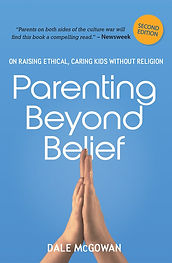A GUIDE TO SELECTING
The Most Effective Parenting Books
Differing Ideas about the Optimum between Authority and Autonomy
Parenting books can be either about choosing a style or about improving the execution. A style should fit both the character of the parent and the learning style and emotional needs of the child.
The most relevant element is the degree of authority and direction used. Both authoritative and autonomous parenting involve challenging aspects that determine the effectiveness of the parenting (i.e. the lasting happiness of the child).
All styles seem to have in common that, when executed well, involve conveyance of unconditional love when a child misbehaves, clarity of rules, consistency and reflection on the child’s actions and their consequences.
A central theme raised in parenting books is the parent’s ability to be okay with discomfort, to work on their own unprocessed emotions and to purify their intentions from any projected desires that the child should fulfill.
A parent who wants a child to compensate for their own undeveloped potential, who wants a child to be successful to avoid shame or who wants a child to be a friend to compensate for feelings of loneliness (the need for approval) won’t succeed with any healthy parenting style.
From an American (or Anglo-Saxon) perspective, it can be insightful to learn about the French (or Mediterranean) parenting style. For while the latter is generally more authoritative, it seems to lead to the kind of mentally mature qualities American parents often desire in their offspring.
From a Western perspective, it can be insightful to learn about the Eastern parenting styles, since the discipline that is taught in the East (when done correctly) seems to lead to the combination of happy and successful children that Western parents aspire to raise.
In some situations, parenting requires specific adjustments, such as when there’s trauma involved, ADHD or when there’s a divorce. There are several books on each of these topics. But be aware: You might just be treating a symptom here.
Types of Books that Guide Better Parenting Choices
Here you find a list of archetypal books about making better parenting decisions from which we captured the essence in a short summary. The books are listed in a random order. We don't earn any commission on your selection.

"The Narcissism Epidemic"
This book by Jean Twenge links many of today's problems with parenting to the trend of parent's seeking external approval. By praising achievements, comparing with others and seeking for attention, parents breed narcissistic traits in their children. Instead, parents should teach children how to be aware of the feeling of others, not compare to others, be happy with good efforts despite results and not to care about the opinion of others while being open to feedback.

"Parenting Beyond Belief"
Dale McGowan supports and encourages non-dogmatic parenting with practical advice such as teaching children to ask open questions, that it's okay to say "I don't know" and how to use critical thinking to find answers. The book would be especially useful for religious parents who are brave enough to take the risk that their children will develop different beliefs.

"French Children Don't Throw Food"
Pamela Druckerman is an American parent in Paris who has adopted elements of French parenting, that have led her children to behave better and self-regulate their emotions. She explains why and how emphasizing the importance of structure, setting boundaries, teaching patience, nurturing social skills, and promoting a varied and healthy diet - authority without being dictatorial - works well.

"No-Drama Discipline"
Daniel Siegel provides an alternative approach to cultivating discipline in a way that it helps the child make decisions both as a child and later on as an adult. Building on brain function, the magic formula presented is: reconnect when emotions are high and only establish rules when the connection is restored.

"The Idle Parent"
This book by Tom Hodgkinson suggests that, if you first teach children about responsibility by involving them in decision-making, reflecting on the consequences, and gradually increasing their autonomy, they will become more empowered to be independent and make better decisions that will increase their happiness and success in life.

Bukuru's Zero-Books Approach
Our suggestion is to start developing your discomfort tolerance level. This allows you to be strict without anger and respond calmly instead of emotionally when children are testing boundaries. You can read here how to do it.
Also, without truly understanding what's going on in your child and why it behaves the way it does, any strategy you choose is just trial-and-error. Look at your child first, even if it's just at a high level. For example, start with asking yourself which archetype applies – to what extent – to the behavior of our child. Divide 100% over these four types, based on your observation:
-
Playful
-
Sensitive
-
Competitive
-
Inquisitive
Now do it again – not based on observed behavior, but based on your idea of the true nature of your child. If there are differences, ask yourself why this might be the case. And, perhaps, ask your child if it agrees and what the explanation might be.
About Bukuru
The core philosophy of Bukuru is that each person should test their own beliefs. The project started as a quest to categorize self-development books in such a way that it would become easier to find books that match your beliefs. However, along the way we concluded that the essence of most books can be captured in a few sentences – if the idea is original at all. Instead of helping people buy books, we now help people not buying books.